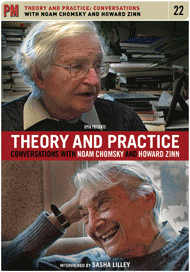Lincoln
Interestingly, Lincoln largely gets a free pass. Even Castro is noted to admire the fallen president. But let us give pause.
Before Lincoln was elected, a proposed constitutional amendment was working it's way through the process. The Corwin amendment would have been the thirteenth, if the war hadn't made it unnecessary. It stated:
And this amendment made it pretty far. It was approved by both the House of Representatives as well as the Senate and ratified by Ohio and Maryland (Illinois apparently got a bootleg ratify). Wonder what Lincoln thought of this amendment? Well, look no further than his first Inaugural speech:
"No objection to its being made express and irrevocable" As for why Lincoln eventually went forward with the Emancipation Proclamation, there is an excellent book that should be turned to: "Forced Into Glory: Abraham Lincoln's White Dream" by Lerone Bennett, Jr. Bennett lays out Lincoln's myths and eschews the purple prose. Good book, hard to find.
This entry will end with two quotes, both from politicians who get a little too much credit.
And then Barack Obama:
Before Lincoln was elected, a proposed constitutional amendment was working it's way through the process. The Corwin amendment would have been the thirteenth, if the war hadn't made it unnecessary. It stated:
No amendment shall be made to the Constitution which will authorize or give to Congress the power to abolish or interfere, within any State, with the domestic institutions thereof, including that of persons held to labor or service by the laws of said State.
And this amendment made it pretty far. It was approved by both the House of Representatives as well as the Senate and ratified by Ohio and Maryland (Illinois apparently got a bootleg ratify). Wonder what Lincoln thought of this amendment? Well, look no further than his first Inaugural speech:
This country, with its institutions, belongs to the people who inhabit it. Whenever they shall grow weary of the existing Government, they can exercise their constitutional right of amending it or their revolutionary right to dismember or overthrow it. I can not be ignorant of the fact that many worthy and patriotic citizens are desirous of having the National Constitution amended. While I make no recommendation of amendments, I fully recognize the rightful authority of the people over the whole subject, to be exercised in either of the modes prescribed in the instrument itself; and I should, under existing circumstances, favor rather than oppose a fair opportunity being afforded the people to act upon it. I will venture to add that to me the convention mode seems preferable, in that it allows amendments to originate with the people themselves, instead of only permitting them to take or reject propositions originated by others, not especially chosen for the purpose, and which might not be precisely such as they would wish to either accept or refuse. I understand a proposed amendment to the Constitution—which amendment, however, I have not seen—has passed Congress, to the effect that the Federal Government shall never interfere with the domestic institutions of the States, including that of persons held to service. To avoid misconstruction of what I have said, I depart from my purpose not to speak of particular amendments so far as to say that, holding such a provision to now be implied constitutional law, I have no objection to its being made express and irrevocable. (paragraph 29)
"No objection to its being made express and irrevocable" As for why Lincoln eventually went forward with the Emancipation Proclamation, there is an excellent book that should be turned to: "Forced Into Glory: Abraham Lincoln's White Dream" by Lerone Bennett, Jr. Bennett lays out Lincoln's myths and eschews the purple prose. Good book, hard to find.
This entry will end with two quotes, both from politicians who get a little too much credit.
My paramount object in this struggle is to save the Union, and is not either to save or to destroy slavery. If I could save the Union without freeing any slave I would do it, and if I could save it by freeing all the slaves I would do it; and if I could save it by freeing some and leaving others alone I would also do that. What I do about slavery, and the colored race, I do because I believe it helps to save the Union; and what I forbear, I forbear because I do not believe it would help to save the Union. -Abraham Lincoln in a 1862 letter to Horace Greely
And then Barack Obama:
"I cannot swallow whole the view of Lincoln as the Great Emancipator. As a law professor and civil rights lawyer and as an African-American, I am fully aware of his limited views on race. Anyone who actually reads the Emancipation Proclamation knows it was more a military document than a clarion call for justice."





